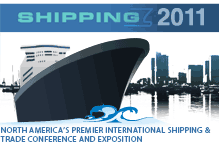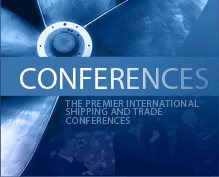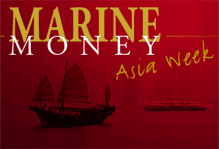
M&A Returns
This week Aegean Marine Petroleum Network (“Aegean”) announced an agreement to acquire Verbeke Bunkering N.V., a leading physical supplier of marine fuels in the Antwerp-Rotterdam-Amsterdam range, which is the world’s second largest bunkering market. A family controlled company with a history of more than 100 years, Verbeke provides services in port to ship operators, marine fuel traders, brokers and other users. Acquiring marine fuels from refineries and major oil producers, the company provides same day sales and service to its customers. For the year ended 2009, the company’s sales volume was approximately 3.5 million metric tons, which represents over half of Aegean’s 2009 volumes. No price was disclosed.
Continue Reading
T’was Two Days Before Christmas… and the Lawyers Were Busy
We begin this year as we finished last year – with a continued focus on the capital markets. Just before Christmas, Knightsbridge Tankers filed a broad shelf registration to issue up to $120 million of its common shares, preferred shares, debt securities, warrants, purchase contracts and units. Proceeds will be used for capital expenditures, working capital, vessel acquisitions, if market conditions warrant, and for general corporate purposes.
Continue Reading
Review and Outlook for the Global Maritime Sector
By Nazery Khalid, Senior Fellow, Maritime Institute of Malaysia
Rough seas, turbulent times
Amid a sea of change brought by the global economic recession and credit crunch, the maritime sector has been subjected to intense forces and challenges that have altered its landscape dramatically. The sharp decline in world trade has wrought serious havoc not seen in the shipping industry for a long time. The shipping sector, which facilitates an estimated 80% of the global trade by volume, has gone on from the darling of investors to a dud in an astoundingly short time. From the heights of record breaking performances in almost all sectors of then industry only two years ago, the maritime industry went on a dramatic free fall that has seen players languishing in massive loss. Some have even failed to survive the economic downturn and financial crisis.
When the full impact of the global economic downturn hit, the maritime industry was among the first activities to feel the brunt. This should not come as a surprise given its pivotal role in facilitating much of global trade. In the shipping sector, shipowners who were basking in the glory of historically high demand, freight rates and asset values, suddenly found themselves reeling from the slump in global trade and the demand for the cargos they carry. Banks cut back lending, leaving shipowners high and dry without access to financing to fulfill their obligations to pay for newbuildings and to come up with working capital to run their business. As a result, they had to cancel orders, leaving shipyards and a host of ancillary services providers high and dry. They were saddled with overcapacity and forced to lay up their vessels and send them to shipbreaking yards. The truly badly hit even exited the business altogether and filed for bankruptcy. Continue Reading
ECA to the Rescue
Undeniably, export credit agencies (“ECAs”) has played an important role in satisfying part of the financing gap needed by the shipping industry. In China, China Exim Bank plays an instrumental role in supporting the maritime industry, having granted shipping/shipbuilding related loans of over RMB 102.5 billion (USD 15 billion) in the domestic currency and USD 7.45 billion in greenback at the end of 2008. In 2009, the policy bank extended a USD 389 million, 12 year secured facility to New York listed Overseas Shipholding Group (“OSG”), in its first ever loan facility to a US company. It would be nearly impossible to secure a 12 year ship finance loan today, let alone this quantum from a single financial institution. Continue Reading
Picking up Distresed Assets and Private Equity
John Kennedy has a quote: “When written in Chinese, the word “crisis” is composed of two characters-one represents danger, and the other represents opportunity.” But even as the shipping markets in general remain in doldrums, there have been surprisingly few mergers and acquisitions in the market, contrary to what one might expect. The lack of liquidity and funding from the banks could be a reason. Or could it also be that market watchers are still holding on to the view that asset prices have yet to hit rock bottom? So whether it is this fear of catching a fallen knife or the lack of financing and quality investment opportunities, seasoned shipping investors and private equity firms remain largely on the sidelines. There were few public distressed situations this year and this could well suggest that banks are working very hard with their clients to avoid foreclosures, rather than accepting haircuts on assets. Continue Reading
Some Surprises in IPO Market
It is hard to believe anyone would be able to pull off a public share offering in 2009 and as one would expect, there were very few successful listings in Asia. Based on our records, Singapore-based bunkering company Yujin International was the only Asian shipping company that had found success in the IPO market. Interestingly, the company chose to list not in Asia but on the London AIM in a deal organized by nominated advisor and broker Seymour Pierce. The size may be small, but to have a Singapore company listing on a small alternative market in London is a big step. The company listed with 30,000 shares priced at GBP 0.33 each, making its total market capitalization after expenses just shy of GBP 10 million. Continue Reading
The Importance of Self Preservation
In 2009, the equity markets had a roller coaster run, but some shipping companies found windows of opportunity for share placements, often tied to debt reduction. Self help through raising equity capital for balance sheet recapitalization is one way to ride through the difficult times. There had been varying degrees of success and among the most notable would be Neptune Oriental Lines’ (“NOL”) USD 972 million rights issue in June and NYK’s recently concluded JPY 116.4 billion (USD 1.3 billion) global equity offering. Continue Reading
A Silver Lining in the Bond Market
For the fortunate few, there lies the silver lining in the bond market. Records were shattered in 2009 in the Asian shipping bond arena with over USD 7.26 billion in new issuances. This is a historical high which represented an over 350% increase from USD 1.59 billion in 2008. Clearly, the need for capital has never been stronger as companies grit their teeth against the harsh operating environment.
Transactions in the Asian shipping bond market ran the gamut from the simplicity of straight unsecured issues to the complexity of Islamic debentures. Korean shipping companies top the list, by issuing bonds with 1-3 year maturity and interest rates of 7-8%. Hyundai Merchant Marine, Hanjin Shipping, STX Pan Ocean, SK Shipping, Korea Line and EUKOR Car Carriers have all tapped the bond market more than once this year, having raised over USD 2.9 billion in total. Top Korean issuer HMM raised KRW 1.06 trillion (USD 899.9 million) through eight bond issuances between February to November this year. Continue Reading
Bank Debt Returns to Normalcy?
One of the major concerns on the minds of many would be the pile of toxic collateralized mortgage paper that remains on banks’ balance sheets and this will continue to restrict the banks’ ability to extend new credit. Likewise, shipping banks face the same tricky task of valuing the shipping assets on their books based on current market prices. Basel II requires banks to set aside more capital to riskier assets whenever the security cover reduces, and this could potentially limit capital for lending. The process of writing down book values has yet taken place and moving forward, it is absolutely crucial that bank losses on shipping remain limited or the industry could risk losing a number of lenders. There has already been a material contraction in ship lending capacity among major shipping banks.
2009 has been a busy year for the ship financiers, not so much for lending but more in terms of restructuring and workouts. Lending terms as one would expect have become more stringent in 2009 and not only has the advance rate been lowered to 50-60%, banks prefer shorter tenors between 3 and 5 years. This is in stark contrast to the 10 to 12 year tenors banks were offering shipowners during the shipping boom just a couple of years back. Bankers call this a return to basics. Continue Reading
2009 in Review: Staying Afloat
The world economy has stop failing and Asia in particular has bounced back faster than expected, largely due to the unprecedented global coordination in both fiscal and monetary policies. But as 2009 draws to a close, uncertainty threatens to derail the sustainability of the current recovery that has been largely driven by replacing private demand with aggressive monetary easing.
We like the way William Thomson, Chairman of Private Capital in Hong Kong, summed up 2009 by describing the global economy’s escape from a cataclysmic collapse of the financial system analogous to a heart attack treated with previously unthinkable doses of adrenaline in the form of unorthodox monetary and fiscal policies. After a lag, the patient has returned to consciousness but is in far from rude health.







